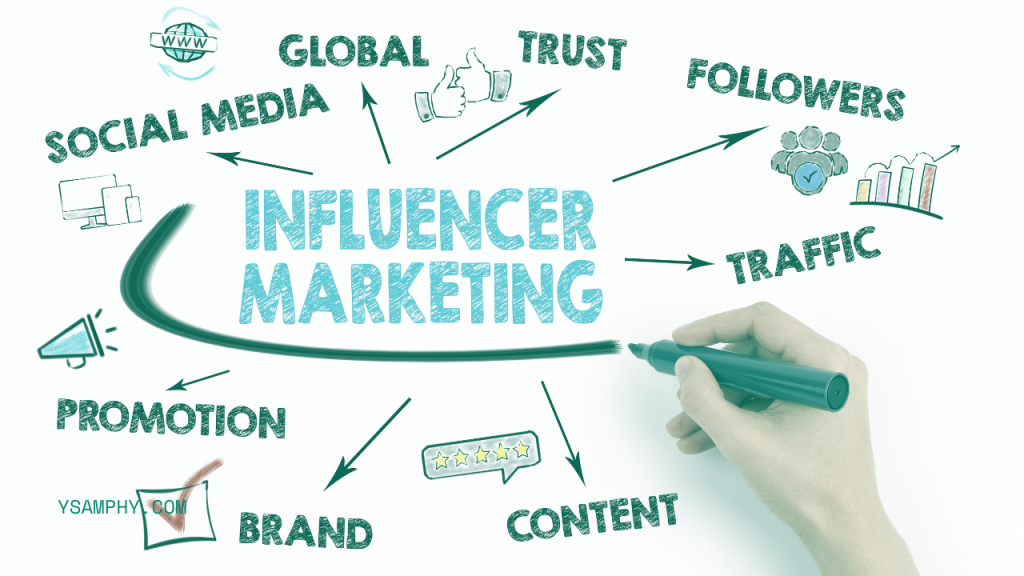Marketing is a dynamic field that evolves with consumer behavior, technological advancements, and industry trends. Applying effective marketing strategies across diverse industries requires a nuanced approach tailored to specific market demands, consumer demographics, and competitive landscapes. Whether you are promoting a tech startup, managing a retail chain, or launching a healthcare service, understanding how to adapt and implement marketing tips across various industries is crucial for achieving success. This guide explores key strategies that can be universally applied while emphasizing the importance of customization to maximize impact and relevance.

Understanding Industry Dynamics
Each industry operates within its ecosystem characterized by unique challenges, consumer expectations, and market dynamics. To effectively apply marketing tips across industries, it is essential to first conduct thorough industry research and analysis. For instance, in the fast-paced tech industry, where innovation drives competitive advantage, marketing strategies often emphasize product features, technological advancements, and early adopter segments. Contrastingly, in industries like healthcare or finance, where trust and credibility are paramount, marketing efforts focus on establishing authority through educational content, testimonials, and compliance with industry regulations.
Furthermore, consumer behavior varies significantly across industries. Retail consumers may be driven by convenience, price sensitivity, and brand loyalty, while B2B customers prioritize efficiency, return on investment, and long-term partnerships. Tailoring your marketing messaging and channels to resonate with these specific behaviors is crucial. For example, leveraging social media and influencer marketing might be effective for reaching younger demographics in consumer goods, whereas cultivating thought leadership through industry publications and conferences might be more effective in B2B sectors.

Customizing Strategies for Maximum Impact
While overarching marketing principles remain consistent, their application must be customized to align with the unique characteristics of each industry. One such principle is the importance of data-driven decision-making. In retail, for instance, leveraging customer data to personalize offers and recommendations can significantly enhance customer experience and drive sales. In contrast, in the hospitality industry, data analytics can inform dynamic pricing strategies, optimize occupancy rates, and personalize guest experiences.
Moreover, the choice of marketing channels can greatly influence campaign effectiveness. Digital marketing, encompassing SEO, PPC advertising, and content marketing, is widely applicable across industries due to its ability to target specific audiences and track campaign performance in real-time. However, traditional marketing channels such as print media and direct mail still hold relevance in industries where personalization and tangible touchpoints are valued, such as luxury goods or professional services.

Implementing Strategies in Specialized Industries
Implementing effective marketing strategies in specialized industries requires a deep understanding of sector-specific challenges and opportunities. For instance, in the healthcare sector, where trust and patient outcomes are paramount, strategies often focus on educational content, patient testimonials, and partnerships with medical professionals. Similarly, in the luxury goods industry, emphasizing exclusivity, craftsmanship, and storytelling through high-end visuals and personalized experiences can resonate with affluent consumers. Specialized industries necessitate targeted approaches that highlight safety, reliability, and environmental sustainability, exemplified in marketing guides such as marketing guides for the marine industry or guides tailored specifically for other niche markets. By recognizing and addressing the unique needs of these sectors through tailored messaging, channels, and experiences, marketers can effectively engage their target audiences and drive meaningful business outcomes.

Leveraging Technology and Innovation
In today’s digital age, technology plays a pivotal role in enhancing marketing effectiveness across industries. Embracing innovative tools such as artificial intelligence (AI), virtual reality (VR), and augmented reality (AR) can revolutionize marketing strategies. For example, AI-powered analytics can provide deep insights into consumer behavior and preferences, enabling personalized marketing campaigns in sectors like e-commerce and hospitality. Similarly, VR and AR technologies can offer immersive experiences to showcase products in industries such as real estate or travel, allowing potential customers to visualize properties or destinations firsthand. Integrating these technologies into marketing initiatives not only enhances engagement but also positions brands as forward-thinking and customer-centric, driving competitive advantage in rapidly evolving markets.

Adapting to Regulatory and Ethical Considerations
Navigating regulatory frameworks and ethical considerations is paramount when applying marketing strategies across diverse industries. Industries like pharmaceuticals and finance operate under stringent regulations regarding advertising claims, data privacy, and consumer protection. Marketing efforts in these sectors must adhere to industry guidelines and ethical standards to avoid legal repercussions and maintain trust with stakeholders. Transparency in marketing communications, compliance with regulatory requirements, and ethical handling of customer data are crucial pillars for building long-term credibility and fostering a positive brand reputation. By staying informed about industry-specific regulations and adopting ethical marketing practices, businesses can mitigate risks and build sustainable relationships with customers and regulatory bodies alike.

Measuring Success and Iterating Strategies
Effective marketing campaigns across industries hinge on continuous evaluation and optimization. Implementing key performance indicators (KPIs) tailored to industry-specific goals allows marketers to measure the success of their campaigns accurately. For instance, metrics such as customer acquisition cost (CAC), conversion rates, and customer lifetime value (CLV) are invaluable in assessing ROI in sectors ranging from software as a service (SaaS) to retail. Conducting A/B testing, gathering customer feedback, and monitoring market trends enable marketers to identify areas for improvement and refine strategies accordingly. By leveraging data-driven insights and adopting a proactive approach to optimization, businesses can adapt swiftly to changing market dynamics, stay ahead of competitors, and achieve sustainable growth in their respective industries.

Harnessing the Power of Influencer Marketing
Influencer marketing has emerged as a potent strategy across industries, leveraging the credibility and reach of social media personalities to promote products and services. This approach is particularly effective in industries where authenticity and peer influence play crucial roles in consumer decision-making. For example, in the fashion and beauty sectors, partnering with influencers who align with brand values and resonate with target demographics can significantly amplify brand awareness and drive sales. Similarly, in the travel and hospitality industry, collaborating with travel influencers who share authentic experiences can inspire wanderlust and influence travel decisions. Even in niche markets such as the marine industry, partnering with maritime influencers and adventurers can help showcase products and experiences to a passionate and engaged audience. By strategically selecting influencers and fostering genuine relationships, businesses can harness the power of influencer marketing to enhance credibility, expand reach, and foster meaningful connections with consumers.

Applying effective marketing strategies across diverse industries requires a blend of adaptability, industry-specific knowledge, and strategic implementation. By understanding the unique dynamics, consumer behaviors, and competitive landscapes within each industry, marketers can tailor their approaches to maximize impact and relevance. Whether leveraging technological innovations, navigating regulatory frameworks, or refining strategies based on measurable outcomes, the key lies in continuous learning, flexibility, and a customer-centric approach. By staying agile and responsive to industry trends and consumer preferences, businesses can position themselves for long-term success and sustained growth in today’s dynamic marketplace.

